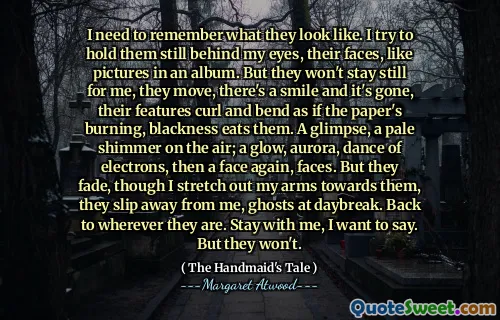The future is in your hands, she resumed. She held her own hands out to us, the ancient gesture that was both an offering and an invitation, to come forward, into an embrace, an acceptance. In your hands, she said, looking down at her own hands as if they had given her the idea. But there was nothing in them. They were empty. It was our hands that were supposed to be full, full of the future; which could be held but not seen.
The passage emphasizes the significant notion that our future is shaped by our own actions and choices. The speaker uses the gesture of extending her hands as a way to signify both an invitation and a challenge, asking us to take responsibility for what lies ahead. It highlights the idea that the future is intangible, yet it is ours to grasp and mold. This act of offering suggests a deep connection and a call to understand the ongoing implications of our decisions.
The imagery of empty hands draws attention to the contrast between potential and reality. While the speaker's hands are devoid of contents, indicating a lack of control over current circumstances, they symbolize hope for what we can create. The future is depicted as something that we each carry within ourselves, waiting to be filled with purpose and meaning through our own efforts and ambitions. This reinforces the theme of agency in the face of uncertainty, urging us to recognize our power in shaping what is yet to come.






